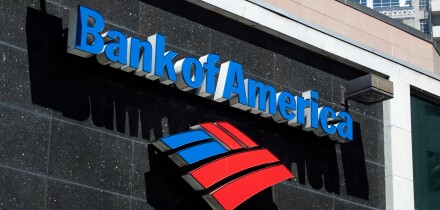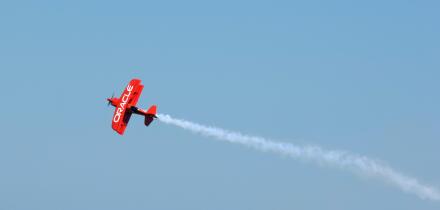Belgacom, the Belgian national telecom company, completed the largest European IPO since Orange, the UK mobile phone company, floated for Eu9bn in 2001. Belgacom's Eu3.3bn deal was also the world's biggest IPO since Travelers Property Casualty in March 2002.
In Scandinavia, two large deals ended a two year drought of IPOs. Oriflame, the Swedish cosmetics company, floated for Skr5.13bn (Eu553m) and Norsk Hydro span off its fertiliser division as Yara International, raising Nkr2.62bn (Eu311m).
The first quarter of 2004 has been the best for IPOs in Europe since the end of 2001, according to Dealogic, with 39 issues totalling $7bn. The percentage of equity capital markets business accounted for by IPOs was 18% ? the highest since the third quarter of 2001.
Yet there was disappointment, too. In Germany, market participants hoping for the first IPO in over a year were thwarted by chipmaker Wacker Siltronic, which was forced to pull its Eu1.09bn Frankfurt listing.
Eircom, the Irish telecom company, also made a less than perfect re-entry to the stock markets in Dublin and London. Although its Eu809m IPO was successfully sold, the stock has traded below issue price since launch.
Yet market observers said the string of completed deals would do much to increase confidence.
"The European IPO market is looking in good shape," said Susanne Willumsen, senior investment manager, European active equities, at State Street Global Advisors in London.
Willumsen said investors had cash available for new issues and predicted that the success of this week's IPOs would enable more companies to come to market.
"The more deals work, the more confidence the market will have to buy," she said. "We expect spring to be strong. Companies are concerned about what might happen in the autumn and are likely to try to get their deals done before then."
This week's fifth deal was Swiss drug company Basilea's Sfr206m (Eu133m) IPO.
Goldman Sachs, Lehman Brothers, Morgan Stanley and UBS ran the books on the Eu3.3bn IPO of Belgacom.
The deal was driven by the ADSB consortium, which sold the stake it has held in the company since 1996. The consortium, which includes SBC Communications and Singapore Telecom, divested 38.4% of Belgacom.
No new shares were sold and the government maintained its 51.6% stake. The remaining 10% of shares are held by Belgacom itself.
The 133m shares on offer were priced below the midpoint of the Eu23-Eu26.50 range at Eu24.50 on Sunday.
"That was a disappointment, but it was understandable given the state of the market," said a senior equity capital markets banker at UBS.
The poor performance of Eircom at its debut (see below) also restricted the bookrunners' freedom to price the issue higher.
At launch Belgacom had a market capitalisation of Eu8.6bn. There is a greenshoe of 13.3m shares.
The stock debuted on Monday and closed 4.78% up at Eu25.67, against a fall of 5.48% in the DJ Stoxx telecoms sector index. Yesterday (Thursday) the stock closed at Eu25.45.
"Close to 5% up is a textbook debut for an IPO," said the UBS banker. "It means everyone gets rewarded for being part of the deal but the company hasn't missed out."
The institutional portion of the deal was around 3.3 times oversubscribed and the retail offering 2.5 times covered.
"We had over Eu1bn in demand from retail investors, which was very impressive," said the banker.
Consequently, and in view of the fact that it was the national telecom provider, Belgacom decided to increase the retail portion of the deal from 15% to 17%.
Institutional allocations were led by Belgium, with Germany and the UK also taking large allocations of stock. A syndicate official at UBS said US demand had been disappointing.
The UBS ECM banker said the 5% market fall in the aftermath of the Madrid bombings had made the offering more difficult, but never put it in jeopardy.
"Belgacom has strong defensive characteristics that appealed to investors," said the UBS banker. "It's not a high growth stock, it's a high yield stock ? and that was important to its success in the current climate." Belgacom plans to pay a 5% dividend.
State Street's Willumsen said it was not coincidental that Eircom and Belgacom had been able to come to market, while semiconductor makers X-Fab and Wacker Siltronic had foundered.
"The telco listings are not high growth companies and bear no resemblance to the telecom stories we had a few years past," she said. "Eircom and Belgacom worked because they had strong management and were in the top three in their markets. Those are the sorts of things that investors are looking for now in a company."
The UBS banker dismissed suggestions that Eircom and Belgacom had competed for investors' attention.
Eircom return a let-down
Eircom's long-expected return to the stock market (it was taken private in 2001 for Eu3bn, having originally floated in 1999) was a let-down.
The company's original flotation caused a furore in Ireland after the stock traded down on its debut and fell almost continuously until it was delisted, leaving retail investors ? one in every seven adults in Ireland ? nursing a loss of almost two-thirds.
This time the bookrunners took no chances and the IPO did not have a retail tranche.
Eurcom's 521.78m shares (193.55m primary and 328.23m secondary) were priced at Eu1.55 late last Thursday from a range of Eu1.48-Eu1.75, raising Eu809m. They were listed on Friday.
Bankers reported a 2.5 times oversubscription. Citigroup, Deutsche Bank, Goldman Sachs and Morgan Stanley were bookrunners for the deal.
The secondary shares were sold by the Valentia consortium including Providence Equity Partners (43.5%), Soros Private Equity (18.5%), Eircom chairman Tony O'Reilly (5.5%) and Goldman Sachs (1.5%).
After the IPO, Providence holds 4.8%, Soros 2%, Goldman Sachs 0.2% and Tony O'Reilly has no shares. Some 70% are in freefloat and 22.78% held by employees.
On its first day Eircom closed at Eu1.53, a fall of almost 1.3%. During the day the stock had traded as much as 4% below issue price.
Yesterday (Thursday) the stock closed at Eu1.48, having traded below issue price all week.
"We were concerned by the fact that the private equity owners of the company had been so successful in stripping out costs that there may be little upside left in the stock," said Willumsen. "Overall, it was hard to get excited about the deal despite having a good yield."
Rival bankers speculated that the absence of a mobile phone unit at Eircom had damaged its prospects. Although Belgacom is also a low-growth company, it does have a mobile unit.
A syndicate official at one of Eircom's bookrunners said Eircom had performed less impressively than Belgacom because of the companies' different risk profiles.
"It clearly makes a difference to investors that Eircom is a higher risk and volatility stock and that is reflected in the price," he said.
"Eircom is highly geared and, despite paying a dividend and having solid free cashflow figures, that is what people are taking note of."
Eircom has about Eu2.15bn of debt. It plans to pay a 7% dividend to shareholders, compared to an average of around 1.3% among European telecom companies.
The syndicate official said about 25% of the deal was allocated to funds in Ireland, about 25% to the US and the remainder elsewhere in Europe, with the UK the strongest contingent. Of the 521.78m shares sold, 54.84m were sold to the employee share trust.






